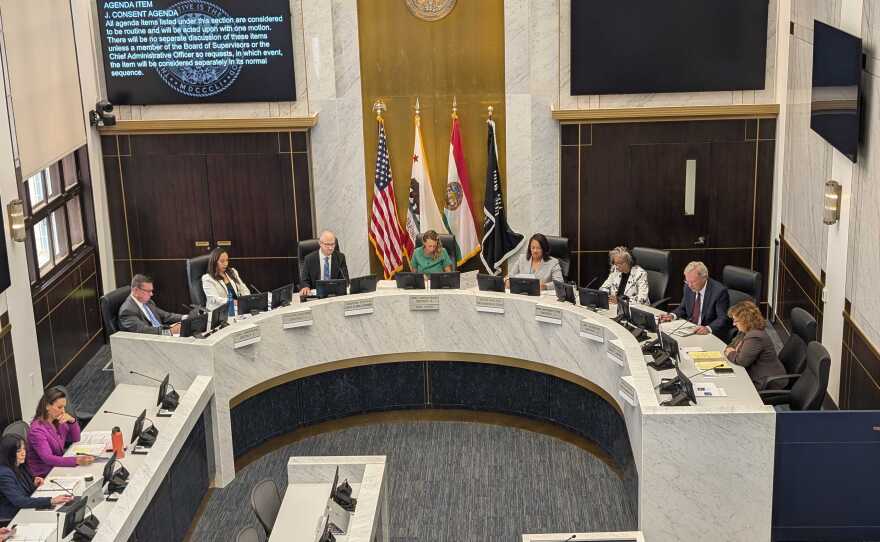The San Diego County Board of Supervisors has approved a plan to make behavioral health services a separate department from the Health and Human Services Agency while also protecting access to the benefit programs CalFresh and Medi-Cal.
On Tuesday, supervisors voted 3-2 to approve forming a new subcommittee, based on a proposal from Chair Terra Lawson-Remer and Vice Chair Monica Montgomery Steppe.
According to the two supervisors, the "Subcommittee on Social Safety Net and Behavioral Health Systems Transformation" will focus on:
- Starting a multi-year process of elevating behavioral health into a standalone department with its own governance, resources and staffing;
- Develop a coordinated and countywide response to federal eligibility requirements, to ensure that families don't lose healthcare or food assistance.
The subcommittee's multi-year transformation plan will also involve:
- Preparing behavioral health to function as a managed Medi-Cal specialty plan;
- Working with experts and community members on design and implementation; and
- Assessing the Health and Human Services Agency structure for other realignment opportunities.
CalFresh offers low-income residents access to nutritious food items, while Medi-Cal is a public health insurance program.
In a statement, Lawson-Remer and Montgomery Steppe described the new policy as "the most significant reform in decades."
According to Lawson-Remer and Montgomery Steppe, behavioral health services now account for over $1.25 billion of its $8.63 billion budget, "making it one of the fastest-growing areas of county government."
House Resolution 1 "could saddle San Diego with massive new costs and delays, creating major administrative burdens just to keep families from receiving the care and food assistance (for which) they already qualify," Lawson-Remer and Montgomery Steppe said.
According to a recent county analysis, Medi-Cal changes would require up to 727 additional staff, costing $63 million, to prevent beneficiaries from losing coverage from processing delays.
For CalFresh, analysis found the county would need to spend $28 million to hire 426 employees to prevent delays or denials of assistance.
"Washington is imposing sweeping new work requirements on Medi-Cal and CalFresh, threatening coverage for thousands of local families, while San Diego is dramatically scaling up its behavioral health system," according to both supervisors.
Signed into law last month, the federal "One Big Beautiful Bill Act" is projected to cost the county more than $300 million each year in additional costs or lost revenue.
"We've made historic investments in behavioral health, expanding treatment, opening crisis centers and building a stronger workforce," Lawson-Remer said. "But those investments demand a structure that can deliver with focus and accountability."
Montgomery Steppe said that protecting families from federal cuts to healthcare and food assistance "is not just a mandate, but a moral obligation. No one in San Diego County should fall through the cracks."
"Now more than ever, we need to treat our direct services with the urgency they deserve," she added.
Supervisor Paloma Aguirre also voted in favor of the proposal, while her colleagues, Joel Anderson and Jim Desmond, were opposed.
Desmond took issue with the subcommittee being described as "ad hoc" (as it was on the Tuesday meeting agenda), saying any committee proceedings should align with the Brown Act, a state law that guarantees the public's right to attend meetings.
Desmond said that while he agreed that behavioral health should be separate from the Health and Human Services Agency, it was important to remember that the Board of Supervisors makes policy rather than advising each county department.
In a statement from his office on Wednesday, Anderson said he voted no because "there weren't proper precautions in the board letter to ensure transparency and to be fully accountable to our constituents."
Aguirre said she was in full support of the health care proposal and added that myths about those who use programs like Medicaid shouldn't influence board decisions.
"We need to meet this moment," Aguirre added. "We need to do it right."






